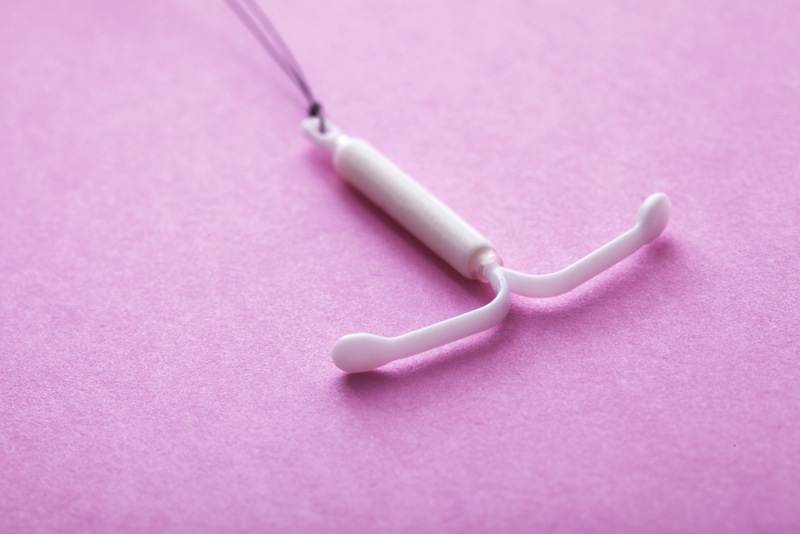Women Who Use IUDs May Have Lower Risk of Cervical Cancer

Get the world’s most fascinating discoveries delivered straight to your inbox.
You are now subscribed
Your newsletter sign-up was successful
Want to add more newsletters?

Delivered Daily
Daily Newsletter
Sign up for the latest discoveries, groundbreaking research and fascinating breakthroughs that impact you and the wider world direct to your inbox.

Once a week
Life's Little Mysteries
Feed your curiosity with an exclusive mystery every week, solved with science and delivered direct to your inbox before it's seen anywhere else.

Once a week
How It Works
Sign up to our free science & technology newsletter for your weekly fix of fascinating articles, quick quizzes, amazing images, and more

Delivered daily
Space.com Newsletter
Breaking space news, the latest updates on rocket launches, skywatching events and more!

Once a month
Watch This Space
Sign up to our monthly entertainment newsletter to keep up with all our coverage of the latest sci-fi and space movies, tv shows, games and books.

Once a week
Night Sky This Week
Discover this week's must-see night sky events, moon phases, and stunning astrophotos. Sign up for our skywatching newsletter and explore the universe with us!
Join the club
Get full access to premium articles, exclusive features and a growing list of member rewards.
Women who use an intrauterine device for birth control may have a lower risk of developing cervical cancer, according to a new review and meta-analysis.
In the new study, published yesterday (Nov. 8) in the journal Obstetrics & Gynecology, researchers found that the rate of cervical cancer was one-third lower in women who used an intrauterine device (IUD) than in those who did not use such a device.
The researchers cautioned that because the review didn't include clinical work to determine how an IUD might prevent cervical cancer, the results don't mean people should get the device for cancer prevention, said lead author Victoria Cortessis, an epidemiologist at the Keck School of Medicine at the University of Southern California. [10 Do's and Don’ts to Reduce Your Risk of Cancer]
But the findings are striking, Cortessis told Live Science.
"I think what we're ready to say is that this pattern is what you would expect if" it was true that IUDs reduced the risk of cervical cancer, Cortessis said. "It looks real. It smells real, but to be really convinced, we need to go back and do studies to find a mechanism."
The researchers said that they now plan on investigating the mechanisms by which IUDs might reduce the rate of cervical cancer.
Cervical cancer is almost always caused by certain strains of human papillomavirus (HPV), according to the World Health Organization. But only about 1 in 10 women who get an HPV infection goes on to develop cervical cancer, Cortessis said. This happens when the body's immune system fails to kill off the HPV and the viral infection persists, eventually causing cervical cancer.
Get the world’s most fascinating discoveries delivered straight to your inbox.
An IUD may lower a woman's risk of cervical cancer by helping to fight off an HPV infection, Cortessis hypothesized. When an IUD is inserted, it triggers an immune response in the body that could "kick out" an HPV infection, she said. Another possible mechanism could be a long-term immune response, she said. The immune system reacts over time to the foreign body of the IUD, and this immune response could also target the HPV, Cortessis said.
In the meta-analysis, the researchers looked at 16 studies that included, in total, more than 12,000 women from around the world. All of the studies contained data on the individual women, their IUD use and their history of cervical cancer. The studies also included information on risk factors for the disease, such as age at first vaginal intercourse and if the women had HPV.
The methodology used by the researchers was "very good," said Eduardo Franco, the director of cancer epidemiology at McGill University in Montreal, who was not involved in the new review.
Confounding variables — or factors that the researcher can't control for — have long been a worry in research on IUDs and cervical cancer, Franco told Live Science. And despite the analysis of confounding variables and robust size of the review, there will still be concern about lingering confounding variables until there is a clinical study, he said.
Cortessis agreed that confounding variables are a limitation of the meta-analysis. But no matter how the data was tested in relation to these variables, the researchers found the same results, she said: The rate of cervical cancer in IUD users was a third lower than among nonusers.
"It's stunning, actually," Cortessis said.
Access to preventative services such as cervical cancer screenings and the HPV vaccine is driving down rates of the cancer in some parts of the world, but rates are rising in others, according to the review. The researchers noted that IUDs appeared to have the strongest impact in populations that had less access to these services
For the sake of these women, Cortessis said she's hopeful that clinical studies will confirm her analysis. "Those are the ladies who need it the most," she said. "Rates are going to explode in the next few decades if we don't find something very, very impactful to do to help young ladies."
Originally published on Live Science.

 Live Science Plus
Live Science Plus











